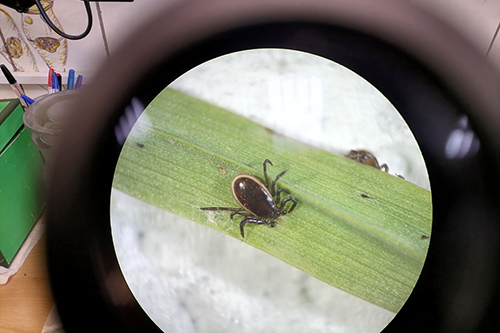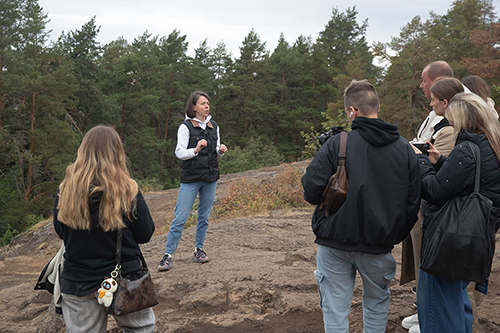— We have planned the activities in a number of spheres. We hope that our cooperation will continue actively and successfully. The territory of the NP is famed for its unique island ecosystems. The agreement was a new step in the work to conserve these unique northern ecosystems. Rocky landscapes are highly vulnerable. It is important to maintain a balance between the protection of natural heritage sites and permissible human activity, so that the tourist flow does not subside and the region's economy develops, — remarked KarRC RAS Director General Olga Bakhmet.
One of the speakers at the seminar was Oksana Klimanova, Professor, Faculty of Geography, Lomonosov Moscow State University. Doctor of Geography, she conducted research in the national park. She noted that the establishment of the Ladoga Skerries Park is a challenging process. This unique territory partially overlaps municipalities, mainly Lahdenpokhsky District - a territory with a developed road infrastructure, tourist facilities, moorings.

Speaking Oksana Klimanova, Professor, Faculty of Geography, Lomonosov Moscow State University.
A priority task for the park is to set the permissible recreational load and hammer out a plan that will define and endorse the list of areas for visitors and recreation.
— The document should be knowledge-based, balanced and well measured. It is essential to take into account the presence of economic facilities, implementation of business projects in order to both fulfill the park's task of preserving the unique nature of the skerries and continue the economic development of the Ladoga area, — remarked Roszapovedtsentr Deputy Director Denis Volf.
At the seminar, a cooperation agreement was signed between the Republic of Karelia Protected Areas Directorate and the national park. The Directorate and the park will exchange expertise in the sphere of protection and management of protected areas, conservation of red-listed plant and animal species, and development of ecotourism.

One of the decisions taken at the meeting was to continue the work to promote the park’s recreational activities within a special working group involving KarRC RAS scientists, Karelian Ministry of Natural Resources and the Environment, municipalities, and the NP administration.
Photos by A. Smirnova / KarRC RAS
















